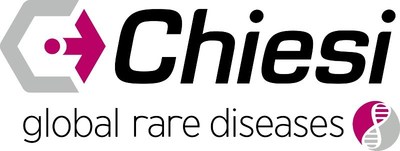Protalix BioTherapeutics, Inc. (NYSE American: PLX) (TASE: PLX), and Chiesi Global Rare Diseases, today announced the final dosing of the last patient in the phase III BALANCE clinical trial of pegunigalsidase alfa (PRX–102), or the BALANCE Study, for the proposed treatment of Fabry disease.
| CARMIEL, Israel and BOSTON, Oct. 15, 2021 /PRNewswire/ -- Protalix Biotherapeutics, Inc. (NYSE American: PLX) (TASE: PLX), a biopharmaceutical company focused on the development, production and commercialization of recombinant therapeutic proteins produced by its proprietary ProCellEx® plant cell-based protein expression system, and Chiesi Global Rare Diseases, a business unit of Chiesi Farmaceutici S.p.A., an international research-focused healthcare Group (Chiesi Group), today announced the final dosing of the last patient in the phase III BALANCE clinical trial of pegunigalsidase alfa (PRX–102), or the BALANCE Study, for the proposed treatment of Fabry disease. The head-to-head BALANCE Study is designed to evaluate the safety and efficacy of PRX–102 compared to agalsidase beta (Fabrazyme®) on renal function in Fabry patients with progressing kidney disease previously treated with agalsidase beta.  “We are excited to have reached this milestone in the BALANCE Study, the last of the three phase III clinical trials in our advanced Fabry disease clinical program,” said Einat Brill Almon, Ph.D., Protalix’s Sr. Vice President and Chief Development Officer. “As the treatment period of this pivotal study has reached its end, we remain focused on the ongoing long-term extension studies and the regulatory development of PRX–102.” Of the 78 patients that enrolled in the BALANCE Study, 72 have completed the trial’s two–year treatment period. Two of the early withdrawals resulted from adverse events and four of them withdrew due to personal reasons. Currently, 67 of the patients that completed the trial have opted, with the advice of the treating physician, to continue treatment with PRX–102 1 mg/kg every other week in a long-term open label extension study, and two additional patients are in the enrollment process. “We are grateful to the patients and investigators whose participation and dedication have played a critical role in advancing this phase III program,” said Giacomo Chiesi, Head of Chiesi Global Rare Diseases. “The final dosing of the last patient in the BALANCE Study is another important milestone in our ongoing efforts to improve support for individuals living with Fabry disease and their families.” About the BALANCE Study The BALANCE study is a 24–month, randomized, double blind, active control study of PRX–102 in Fabry patients with impaired renal function. The Company has completed enrollment of 78 patients in the study, which is designed to evaluate the safety and efficacy of PRX–102 compared to agalsidase beta (Fabrazyme®) on renal function in Fabry patients with progressing kidney disease previously treated with agalsidase beta infused once every two weeks. Patients previously treated with agalsidase beta for approximately one year and on a stable dose for at least six months were screened and then randomized on a 2:1 ratio to 1 mg/kg of PRX-102 or 1 mg/kg of agalsidase beta. Randomization is being stratified by urinary protein to creatinine ratio (UPCR) of < or ≥ 1 g/g by spot urine sample. The study was designed such that no more than 50% of the patients enrolled in the study would be female. Approximately 40% of the enrolled patients were female. Patients participating in the study are being evaluated to, among other disease parameters, determine if their renal function continues to deteriorate at the same rate while being treated with agalsidase beta as measured by eGFR slope. Cardiac assessment, Lyso-Gb3, pain, quality of life, immunogenicity, clinical events and pharmacokinetic and other parameters are also being evaluated. About Fabry Disease Fabry disease is an X-linked inherited disease that results from deficient activity of the lysosomal α–Galactosidase–A enzyme resulting in progressive accumulation of abnormal deposits of a fatty substance called globotriaosylceramide (Gb3) in blood vessel walls throughout a person’s body. Fabry disease occurs in one person per 40,000 to 60,000. Fabry patients inherit a deficiency of the α–Galactosidase–A enzyme, which is normally responsible for the breakdown of Gb3. The abnormal storage of Gb3 increases with time and, accordingly, Gb3 accumulates, primarily in the blood and in the blood vessel walls. The ultimate consequences of Gb3 deposition range from episodes of pain and impaired peripheral sensation to end–organ failure – particularly of the kidneys, but also of the heart and the cerebrovascular system. About Pegunigalsidase Alfa (PRX–102) Pegunigalsidase alfa (PRX–102) is an investigational, plant cell culture-expressed, and chemically modified stabilized version of the recombinant α–Galactosidase–A enzyme. Protein sub-units are covalently bound via chemical cross-linking using short PEG moieties, resulting in a molecule with unique pharmacokinetic parameters. In clinical studies, PRX–102 has been observed to have a circulatory half-life of approximately 80 hours. Protalix designed PRX–102 to potentially address the continued unmet clinical need in Fabry patients. About Protalix BioTherapeutics, Inc. Protalix is a biopharmaceutical company focused on the development and commercialization of recombinant therapeutic proteins expressed through its proprietary plant cell-based expression system, ProCellEx. Protalix was the first company to gain U.S. Food and Drug Administration (FDA) approval of a protein produced through plant cell-based in suspension expression system. Protalix’s unique expression system represents a new method for developing recombinant proteins in an industrial-scale manner. Protalix’s first product manufactured by ProCellEx, taliglucerase alfa, was approved by the FDA in May 2012 and, subsequently, by the regulatory authorities of other countries. Protalix has licensed to Pfizer Inc. the worldwide development and commercialization rights for taliglucerase alfa, excluding Brazil, where Protalix retains full rights. Protalix’s development pipeline consists of proprietary versions of recombinant therapeutic proteins that target established pharmaceutical markets, including the following product candidates: pegunigalsidase alfa, a modified stabilized version of the recombinant human α–Galactosidase–A protein for the treatment of Fabry disease; alidornase alfa or PRX–110, for the treatment of various human respiratory diseases or conditions; PRX–115, a plant cell-expressed recombinant PEGylated uricase for the treatment of refractory gout; PRX–119, a plant cell-expressed long action DNase I for the treatment of NETs-related diseases; and others. Protalix has partnered with Chiesi Farmaceutici S.p.A., both in the United States and outside the United States, for the development and commercialization of pegunigalsidase alfa. About Chiesi Global Rare Diseases Chiesi Global Rare Diseases is a business unit of the Chiesi Group established in February 2020 and focused on research and development of treatments for rare and ultra-rare disorders. The Global Rare Diseases unit works in collaboration with Chiesi Group to harness the full resources and capabilities of our global network to bring innovative new treatment options to people living with rare diseases, many of whom have limited or no treatments available. The unit is also a dedicated partner with global leaders in patient advocacy, research and patient care. For more information visit www.chiesiglobalrarediseases.com. About Chiesi Group Based in Parma, Italy, Chiesi is an international research-focused pharmaceuticals and healthcare group with over 85 years’ experience, operating in 30 countries with more than 6,000 employees (Chiesi Group). To achieve its mission of improving people’s quality of life by acting responsibly towards society and the environment, the Group researches, develops and markets innovative therapeutic solutions in its three focus areas: AIR (products and services that promote respiration, from new-born to adult populations), RARE (treatment for patients with rare and ultra-rare diseases) and CARE (products and services that support specialty care and consumer-facing self-care). The Group’s Research and Development centre is based in Parma and works alongside 6 other important research and development hubs in France, the U.S., Canada, China, the UK, and Sweden to pursue its pre-clinical, clinical, and regulatory programmes. In 2018 Chiesi has changed its legal status to a Benefit Corporation, according to the law in Italy, USA and, more recently, in France, by incorporating common benefit objectives into its bylaws, to generate value for its business, for the society and the environment. Since 2019, Chiesi has been the world’s largest B Corp certified pharmaceutical group. B Corps are global leaders convinced to leverage business as a force for good. Moreover, as a Benefit Corporation, Chiesi Farmaceutici S.p.A. is required by law to report annually in a transparent way about its progress in achieving the common benefits objectives it has set forward. The Group is committed to becoming carbon neutral by the end of 2035. For more information, please visit www.chiesi.com. Protalix BioTherapeutics Forward-Looking Statements Disclaimer To the extent that statements in this press release are not strictly historical, all such statements are forward-looking, and are made pursuant to the safe-harbor provisions of the Private Securities Litigation Reform Act of 1995. The terms “expect,” “anticipate,” “believe,” “estimate,” “project,” “may,” “plan,” “will,” “would,” “should” and “intend,” and other words or phrases of similar import are intended to identify forward-looking statements. These forward-looking statements are subject to known and unknown risks and uncertainties that may cause actual future experience and results to differ materially from the statements made. These statements are based on our current beliefs and expectations as to such future outcomes. Drug discovery and development involve a high degree of risk and the final results of a clinical trial may be different than the preliminary findings for the clinical trial. Factors that might cause material differences include, among others: risks related to the FDA’s positions as conveyed in the minutes issued by the FDA for the Type A meeting; risks related to the timing and progress of the preparation of a Biologics License Application (BLA) resubmission addressing the complete response letter and of a Marketing Authorization Application (MAA) in the European Union; risks related to the timing, progress and likelihood of final approval by the FDA and European Medicines Agency (EMA) of a resubmitted BLA and an MAA, respectively, for PRX–102 and, if approved, whether the use of PRX–102 will be commercially successful; failure or delay in the commencement or completion of our preclinical studies and clinical trials, which may be caused by several factors, including: slower than expected rates of patient recruitment; unforeseen safety issues; determination of dosing issues; lack of effectiveness during clinical trials; inability or unwillingness of medical investigators and institutional review boards to follow our clinical protocols; and inability to monitor patients adequately during or after treatment; delays in the approval or potential rejection of any applications we file with the FDA, EMA or other health regulatory authorities for our other product candidates, and other risks relating to the review process; risks associated with the novel coronavirus disease, or COVID–19, outbreak, which may adversely impact our business, preclinical studies and clinical trials; risks related to any transactions we may effect in the public or private equity markets to raise capital to finance future research and development activities, general and administrative expenses and working capital; the risk that the results of the clinical trials of our product candidates will not support the applicable claims of safety or efficacy, or that our product candidates will not have the desired effects or will be associated with undesirable side effects or other unexpected characteristics; risks related to our ability to maintain and manage our relationship with our collaborators, distributors or partners; risks related to the amount and sufficiency of our cash and cash equivalents; risks relating to our ability to make scheduled payments of the principal of, to pay interest on or to refinance our outstanding notes or any other indebtedness; our dependence on performance by third party providers of services and supplies, including without limitation, clinical trial services; delays in our preparation and filing of applications for regulatory approval; the inherent risks and uncertainties in developing drug platforms and products of the type we are developing; the impact of development of competing therapies and/or technologies by other companies and institutions; potential product liability risks, and risks of securing adequate levels of product liability and other necessary insurance coverage; and other factors described in our filings with the U.S. Securities and Exchange Commission. The statements in this press release are valid only as of the date hereof and we disclaim any obligation to update this information, except as may be required by law.  Protalix BioTherapeutics Investor Contact Chiesi Global Rare Diseases Media Contact SOURCE Protalix BioTherapeutics, Inc. and Chiesi | ||
Company Codes: AMEX:PLX, Berlin:PBDA, Dusseldorf:PBDA, Frankfurt:PBDA, Munich:PBDA, Stuttgart:PBDA, TelAviv:PLX |




